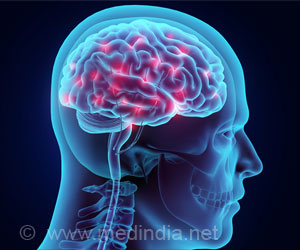New study highlights the importance of vascular health as a key factor in memory decline and cognitive function.

Association of Medial Temporal Lobe Cerebrovascular Reactivity and Memory Function in Older Adults With and Without Cognitive Impairment
Go to source). “We’re studying the ability of these very small vessels to respond to stimuli and to dilate, and they’re showing dysfunction in people who have memory problems,” said senior author Daniel Nation, a professor of gerontology and medicine at the USC Leonard Davis School of Gerontology. “It could implicate blood vessel dysfunction in a very early stage of memory loss. It happened whether or not people had Alzheimer’s-related brain changes. They still had this blood vessel problem if they had memory issues.”
‘Could problems with tiny #bloodvessels in the brain be an early sign of #dementia? Read on. #brainhealth’





Microvascular Issues in Early Stages of Memory Loss
For the study, researchers recruited a sample of 144 older, independently living adults from the community. The volunteers took a neuropsychological assessment, gave blood samples and underwent brain MRI, or magnetic resonance imaging.During MRI, volunteers held their breath for 15-second intervals, an exercise designed to dilate the brain’s blood vessels, a natural process called “cerebrovascular reactivity” which regulates oxygen levels in the brain.
Researchers paid special attention blood vessels supplying the temporal lobes, located on the sides of the head, near the ears. Participants whose blood vessels didn’t dilate properly showed signs of cognitive impairment.
“With this approach, we can pinpoint the problem to the blood vessels and their ability to dilate. That’s not the way people usually think about memory impairment in older adults,” Nation said. “There’s an increasing realization that the main cause of dementia is not actually Alzheimer’s disease, it’s mixed pathology. If you just focus on amyloid, you’re certainly not going to get the full picture. Maybe this technique should be incorporated into our diagnostic approaches.”
Nation said that some blood pressure drugs may potentially protect vascular function in a way that preserves memory, but more research is needed.
Advertisement
- Association of Medial Temporal Lobe Cerebrovascular Reactivity and Memory Function in Older Adults With and Without Cognitive Impairment - (https://www.neurology.org/doi/10.1212/WNL.0000000000210210)
Source-Eurekalert














